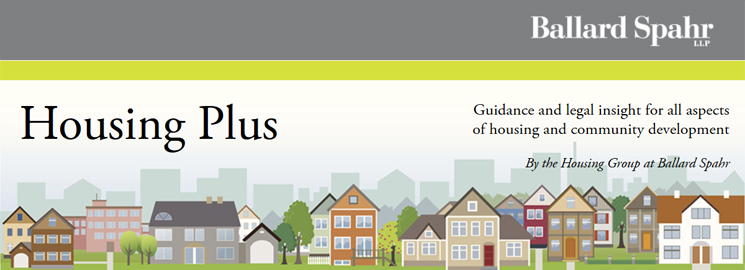
With HUD’s Rental Assistance Demonstration program in full swing and transactions moving through the RAD pipeline, it may be helpful to step back now and again to consider some points about RAD. Here are a few that have presented themselves over the last several months:
-
Don’t believe everything you read in the news. A RAD conversion does not eliminate affordable housing. To the contrary, a RAD conversion can preserve the affordability of a site or units for up to 40 years, which is the standard term that public housing must be available to households with incomes at or below 80% of the area median income when public housing capital funds are used to construct new units. The 40 year affordability term associated with a RAD conversion is longer than the affordability period for public housing modernized with public housing capital funds (20 years) or operated with public housing operating subsidy (10 years after last operating subsidy payment).
-
A RAD conversion does not remove the appropriations risk. Just like public housing, funds for both the RAD project-based voucher (PBV) and project-based rental assistance (PBRA) contracts are subject to appropriations. Although they have been more consistently funded by Congress than public housing in the past, in recent years even the PBRA appropriations – historically the more stable of the HUD Section 8 accounts – has not been fully funded each year.
-
While the RAD cap has been reached for public housing RAD conversions, HUD is trying to lift the 60,000 unit cap and is seeking to engage those housing authorities with units on the waiting list by identifying those Commitments to enter into a HAP that are not able to proceed toward a closing. Housing authorities who do not get awarded within the 60,000 initial RAD slots may want to explore other redevelopment options (mixed-finance public housing, disposition, voluntary conversion, etc.) since we may not know until September 2014 – the deadline for passing the FY 2015 budget – whether Congress will agree to expand the RAD cap. In recent years budget passage has occurred well after this deadline, so the wait may be even longer.
-
RAD can work financially for many public housing and other affordable sites, but in its current form it is not a solution for all agencies. HUD acknowledged this by including in its FY2015 budget a request for additional funds for agencies that want to participate in RAD but need more per-unit subsidy than the present incarnation of RAD will permit. As the program evolves, and if the RAD cap is expanded, it may work for more agencies. If not, there are still other options for redeveloping housing.
-
HUD is still accepting applications for the second component of RAD, permitting the conversion of Rent Supplement (Rent Supp), Rental Assistance Payment (RAP) and Mod Rehab properties when the subsidy contract expires or is terminated, or the FHA-insured mortgage is pre-paid.